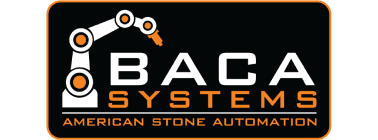Japan’s leading manufacturer of stationery, office furniture and office equipment for over a century, Kokuyo Corporation, is receiving our Unlocking Productivity Award–Japan for implementing Slack to successfully streamline the operation of its cross-organizational Hundred Yen Project and double the speed at which it completes projects.
In November 2021, the company set a plan in place to modernize its processes, create new business ventures and improve customer experience. Kokuyo’s global stationery division was part of the reform, as was the division’s Hundred Yen Project, an effort led by Mr. Kotaro Kiyota, an expert in the Business Promotion Office’s Business Promotion Unit.
Mr. Kiyota describes the Hundred Yen Project, launched in January 2020, as “an experimental project with a startup feel, at a company with a long history and a culture that values its formal structure.” Traditionally, from planning to sales, new projects took six to 12 months to launch, but the Hundred Yen Project was part of an initiative for “double-speed management.” With it, a plan is proposed to buyers. If it is accepted, it’s immediately brought to market; if not, the company starts working on the next one right away. The department decided to implement Slack for the first time in company history, using the productivity platform to enable communication between cross-functional partners in different time zones across sales, production and development.
At any given time, the Hundred Yen Project has more than 30 projects in motion in various stages. Previously, Mr. Kiyota managed all these conversations in email and social networking services, but that was clunky and ineffective, with siloed information quickly getting lost. So he created a main Slack channel, starting a thread for each project. He can now seamlessly manage each one, and newcomers can easily catch up by reading through the relevant thread’s history.
“Slack has the power to break down the walls of vertical organizations.”
Kokuyo also uses Slack as a knowledge and information hub. Historically, the act of collecting and sharing information about competitors was limited to the sales floor. Now with Slack, Kiyota requires all team members—not just those on the sales team—to visit a store at least once a month, take photos and post any insights in a dedicated Slack channel. This diversifies on-the-ground intel, enabling the team to see things they might not otherwise notice.
With these Slack best practices in place, Kokuyo cut its development time in half with impressive results: sales from the Hundred Yen Project rose 138% year-over-year—and jumped 388% compared with two years prior. In addition to these growth numbers, Mr. Kiyota recognizes the power of Slack to empower everyone. “By having people in different positions share their expertise in cross-organizational projects on Slack, we’ve created a more innovative environment that allows us to bring out the best in each individual,” he says.
Although Kokuyo was initially resistant to change, awareness of and proficiency in Slack steadily increased within Mr. Kiyota’s team. By gathering in Slack, cross-functional teams could communicate in a more casual way, get to know each other better and offer insightful advice. Operational efficiency and productivity increased, and everyone honed their skills. These efforts were recognized by leadership, and the team received the company’s Kokuyo Balance Award.
“The word ‘agile’ is used a lot these days, but to be truly agile, you have to start by making your communication agile using tools like Slack,” says Mr. Kiyota. “I would advise those with doubts about adopting Slack to experiment with it today.”















